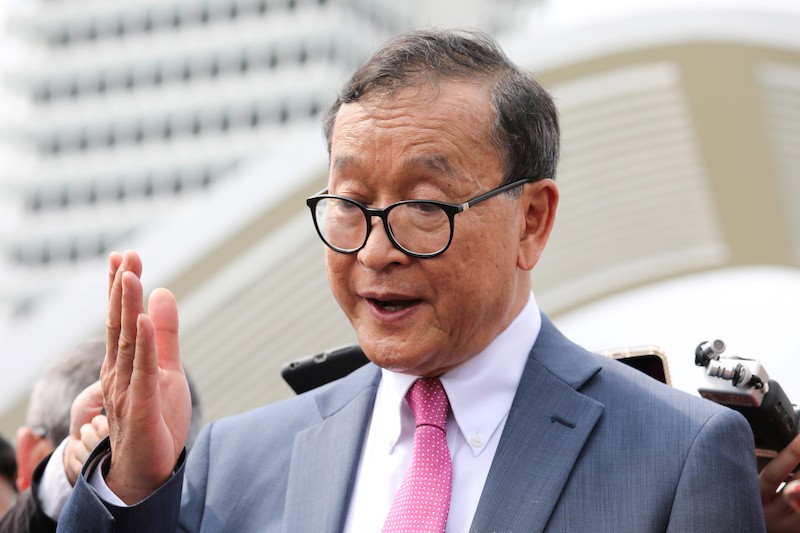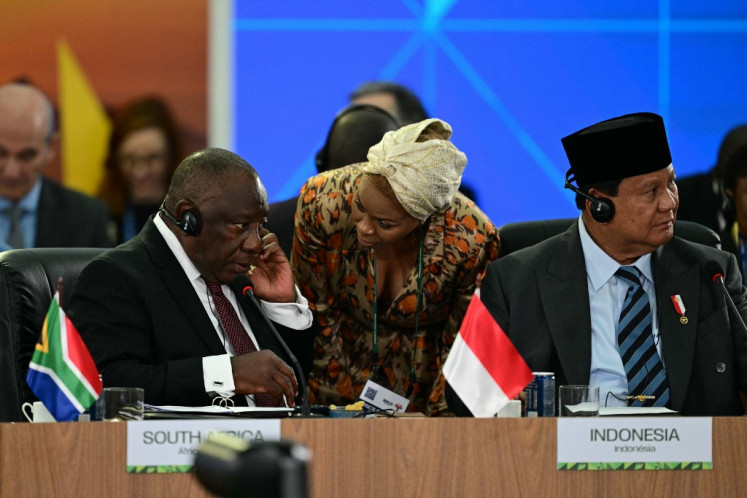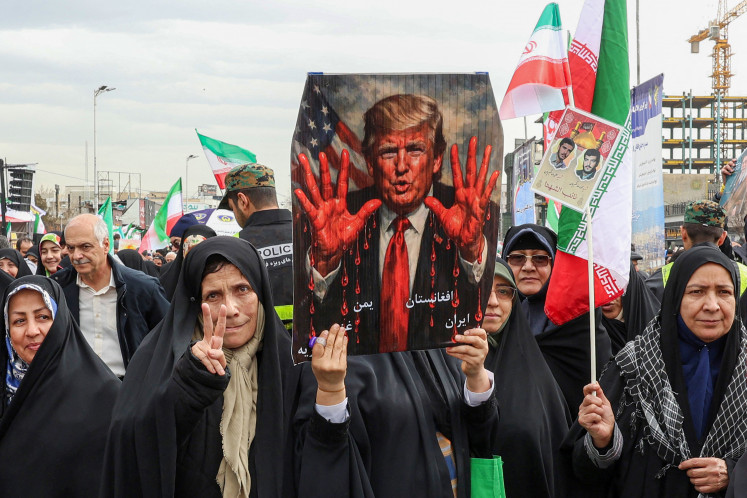Popular Reads
Top Results
Can't find what you're looking for?
View all search resultsPopular Reads
Top Results
Can't find what you're looking for?
View all search resultsCambodia now different from 28 years ago
Currently, Cambodia’s domestic issues are being over-internationalized, which has led to undermining the country’s sovereignty, independence, peaceful democratization and economic well-being.
Change text size
Gift Premium Articles
to Anyone
T
his is in response to an opinion piece by Kornelius Purba titled “Indonesia should help Cambodia again, after 28 years” that was published in The Jakarta Post on Nov. 15. Currently, Cambodia’s domestic issues are being over-internationalized, which has led to undermining the country’s sovereignty, independence, peaceful democratization and economic well-being.
The aforementioned piece reflects the writer’s lack of understanding of the “new” Cambodia. His views are shaped by his knowledge of Cambodia in the past, the “old” Cambodia. He seems to have a comprehensive understanding of Cambodia’s recent past, but he is probably ill-informed about the current situation in Cambodia. He is also trapped in the narratives of some populist and extremist Cambodian politicians. The fact that Indonesia was among the proactive mediators of peace for Cambodia in the late 1980s and early 1990s is indisputable, and Cambodia is grateful for that.
Twenty-eight years ago, Cambodia was in a state of civil war; 28 years ago, different political and armed groups in Cambodia sought help from foreign countries. All factions agreed to accept mediation from Indonesia, Thailand, Japan and France.
However, at this point in time, the offer of help is uninvited and in such a case, it is considered mere interference into Cambodia’s domestic affairs. The commentator should know what kind of democracy he is seeking to promote, or at least be sure of whom he is suggesting to help.
Save Cambodia from its 20-year-old peace, the longest peace in Cambodia’s modern history? Save Cambodia from 20 years of 7 percent average economic growth? It must be noted that over the last two decades, Cambodia has built a foundation for sustainable peace and development. However, that hard-earned peace remains fragile due to rising populist politics and political extremism. Indonesia’s democracy, too, is being challenged by rising religious fundamentalism.
The political dynamics that are unfolding in Cambodia are influenced by extremists who constantly provoke street riots and seek violent change through undemocratic means. The call for the armed forces to rise up against a legitimate government, democratically elected by more than 80 percent of registered voters, is not to be tolerated.
Kornelius should at least check the profiles, speeches, thoughts and deeds of those politicians to whom he is trying to offer assistance. In a nutshell, there are no patriotic politicians in the world who will ask foreign countries to impose sanctions on their own country, like these destructive Cambodian politicians. For instance, despite their domestic struggles, Thaksin Shinawatra, Aung San Suu Kyi, Anwar Ibrahim nor Benigno Aquino sought foreign economic sanctions on their countries and peoples.
In terms of principle, it would be very un-Indonesian for Indonesia to support populist and extremist politicians, because Indonesia’s Pancasila principles promote moderation and toleration and reject radicalism and extremism.
Indonesia should encourage those extremist Cambodian politicians to pursue dialogue and national reconciliation, not popular uprisings or a “color revolution”.
Foreigners should be more attentive to the complexity of Cambodia’s domestic politics and foreign policy before commenting, which can be counterproductive to Cambodia’s young and fragile democracy as well as ASEAN unity. Cambodia nowadays is different from the Cambodia 28 years ago. With its young workforce, Cambodia is one of the most dynamic economies in the region. In terms of democracy, the rising middle class is the cornerstone of peaceful democratization.
A healthy democracy starts from within. Cambodia is on the right track toward democratic consolidation. Demographic change, social transformation and economic development are the key determinants of Cambodia’s democracy. Foreign analysts do not understand Cambodia. They mainly reinforce the arguments of others and largely rely on secondary data, especially online news. Without talking to local stakeholders, their arguments are weak and baseless.
My message to the journalist and opinion writer Kornelius Purba is to change his approach and come to Cambodia to conduct a field study in order to develop evidence-based analysis.
***
Cambodian analyst










